BLUE HILL — Samantha Haskell’s first day on the job at Blue Hill Books came in July 2007, when the store’s owners hired her for a one-night gig to oversee throngs of kids giddy with excitement about the midnight release of a Harry Potter book. After graduating in 2010 from the College of the Atlantic, where she studied how to keep rural communities healthy and strong, she returned home to Blue Hill and began working at the store full time.
Ten years after entertaining 200 kids who stayed awake past their bedtimes to await the magic midnight hour, Haskell, 30, now owns the little white bookstore with blue begonias on Pleasant Street, thanks to the financial support of the community she is trying to enrich. The bookstore is so important to the community that residents went to unusual lengths to make sure it stayed open and local.
Fearful of losing a community magnet and meeting place and concerned about what would happen if the store fell into the wrong hands, a socially minded local couple helped save Blue Hill Books by loaning Haskell the money she needed to complete the sale, and she enters her first summer buoyed by the support of other customers who purchased “a share” of books, for as much as $1,000 each, just as they support local farmers by purchasing shares of produce or meat through community-supported agriculture programs. Those shares, which Haskell declined to enumerate for propriety reasons, helped her through her first winter in business.
‘We need that store. It’s a community gathering place. It has a feeling almost of a coffeehouse, but there’s no coffee in there.’
— Sara Willis, longtime customer who bought a $1,000 share
Their financial commitment ensures the store will remain not just locally owned, but integral to the life and sustenance of the town.
“One of the reasons we moved to Maine was the quality of life,” said Peter Neill, a Sedgwick resident who, along with his wife, Mary Barnes, helped Haskell finance the purchase. “And part of our quality of life here is having an engaged intellectual community. A real good library and a real good bookstore are equally important, and we are lucky to have both here in Blue Hill. Community is at the core of this, and a bookstore is part of sustaining and nurturing community.”
LOVE OF COMMUNITY AND BOOKS
Owning a bookstore was not in Haskell’s plans when she came home to Blue Hill after college. She simply wanted to find a way to be active in her community and use her skills for the overall greater good of Blue Hill. She was interested in the community’s agricultural and boat-building traditions, and she was encouraged that many of the new farmers in Blue Hill were people her age, who came to rural Maine as part of larger societal trends toward young people growing their own food and supporting themselves through agriculture. Haskell became a director of Blue Hill Heritage Trust, a local land trust.
Still, the act of coming home was unusual among the high school friends with whom she graduated from George Stevens Academy, who with few exceptions went off to Boston, New York and other big cities in search of their independence. Among her peer group, leaving Maine felt like a rite of passage, a necessary step in the path toward larger success in life. She, too, felt that tug, which landed somewhere between obligation and adventure. She left Maine to attend college in Boston and transferred to the College of the Atlantic after her sophomore year.
Coming home, she said, made her feel “like an outlier. It took time for me to realize it was OK for me to come home.”
She was committed to the idea of returning to Blue Hill because of a love of community – and books. Making it work required the efforts of people in town who cared enough to invest in the store.
The founders and former owners of Blue Hill Books, Mariah Hughs and Nicholas Sichterman, announced the sale and introduced the idea of a community-supported bookstore in a letter to customers in February. The sale closed Feb. 1.
Haskell, Sichterman said, is like family. “We’ve known her half of her life,” he said. They had been thinking about selling the store for several years and became more serious about it in the past two or three. Sichterman said, and his wife agreed: “When we retire, Samantha will have the first opportunity to say ‘yes’ or ‘no’ to taking over the store.”
CUSTOMERS PURCHASE BOOK ‘SHARES’
Financing was the problem. Haskell didn’t have the money to buy the store on her own, though she had the most knowledge of its operation and was in tune with the community and what it wanted and needed from the store. That’s when Neill and Barnes got involved, agreeing to loan Haskell money to close the sale. After that, Sichterman and Hughs wrote their letter announcing the sale and asking their customers to consider buying book shares, which essentially means giving people the opportunity to pay in advance for the books they intend to purchase during the year.
In agriculture, CSAs connect farmers with their communities, creating an alternative system of food distribution that strengthens community and offers the farmers some predictable income. Blue Hill Books is using a similar model.
Haskell offered full shares for $1,000, half shares for $500 and quarter shares for $250, and has been flexible with people who want to support the store but can’t afford to spend that much money at once. The money she collected gave her an influx of cash, which helped her through the winter months when seasonal residents are away and sales are slow compared to the high-traffic summer and fall.
“The one thing we knew Samantha needed was a shot in the arm with capital to get going,” Sichterman said. “February, March and April are not exactly busy months.”
Longtime customer Sara Willis bought a $1,000 share, and she doesn’t intend to use it “for a year or so.”
“I want Samantha to succeed, and I think she will,” she said. “I would give more if it was necessary. We need that store. It’s a community gathering place. It has a feeling almost of a coffeehouse, but there’s no coffee in there.”
Losing the store, she added, would adversely affect the character of life in Blue Hill and diminish its appeal among a large segment of full-time and seasonal residents, as well as tourists.
‘A HAVEN FOR PEOPLE WHO LOVE TO READ’
Hughs and Sichterman began the store in their home 30 years ago. At the time, they lived directly across Pleasant Street from where the bookstore is now. They have since moved up the road. They built the current store in 1992, mostly out of concern that if they didn’t, someone would build condos or something else across from their home. “If we were going to sit on our porch, we wanted to look at something we liked,” Sichertman said.
The store succeeded because they created an atmosphere that was inviting and unique, down to the wood-slatted entryway that Sichterman designed and built to catch dirt and dampness from people’s shoes. Sichterman also built the shelves for the store himself and stocked those shelves with books that he thought would appeal to local readers. It wasn’t magic, he said. “The store grew with us and the community. We would sell one book and buy two more,” he said.
They created the perfect bookstore for the community, Willis said. “They just knew everyone and knew what was good. They created a haven for people who love to read – or people who just need a book to identify trees in the Maine woods. It was always right there. They always had exactly what you needed.”
National trends suggest Haskell’s timing is pretty good. While overall revenue from book sales declined 6.6 percent in 2016 compared to 2015, according to Publisher’s Weekly, the American Booksellers Association reports that independent bookstores have increased 27 percent since 2009, making up for the loss of big-box book retailers. Those numbers reflect declining sales at national booksellers, and they affirm Haskell’s belief that the key to success is staying local. That trend is evident in Portland, which gained its third independent bookstore last year.
With summer in full bloom at Blue Hill, Haskell and her boyfriend, Rob Cushman, are focusing on the day-to-day operation of the store. On a recent Monday, that meant unpacking 15 boxes of books delivered in the morning, stacking shelves and serving customers. The store’s front porch, with benches for people to sit and talk, hummed with activity. Visitors admired the flowers, which Hughs has planted every year and planted again this year, for the sake of continuity.
Haskell is learning as she goes.
She is making small changes at the store. She has added a section of books published by small and university presses, and another that features titles highlighted in the New York Review of Books. Mostly, she aims to continue what Hughs and Sichterman started 30 years ago, which is community-based book-selling.
“I see the store as an opening community space where people, wherever they come from, can be served by an exchange of ideas,” she said.
Bob Keyes can be contacted at 791-6457 or at:
bkeyes@pressherald.com
Twitter: pphbkeyes
Copy the Story LinkSend questions/comments to the editors.


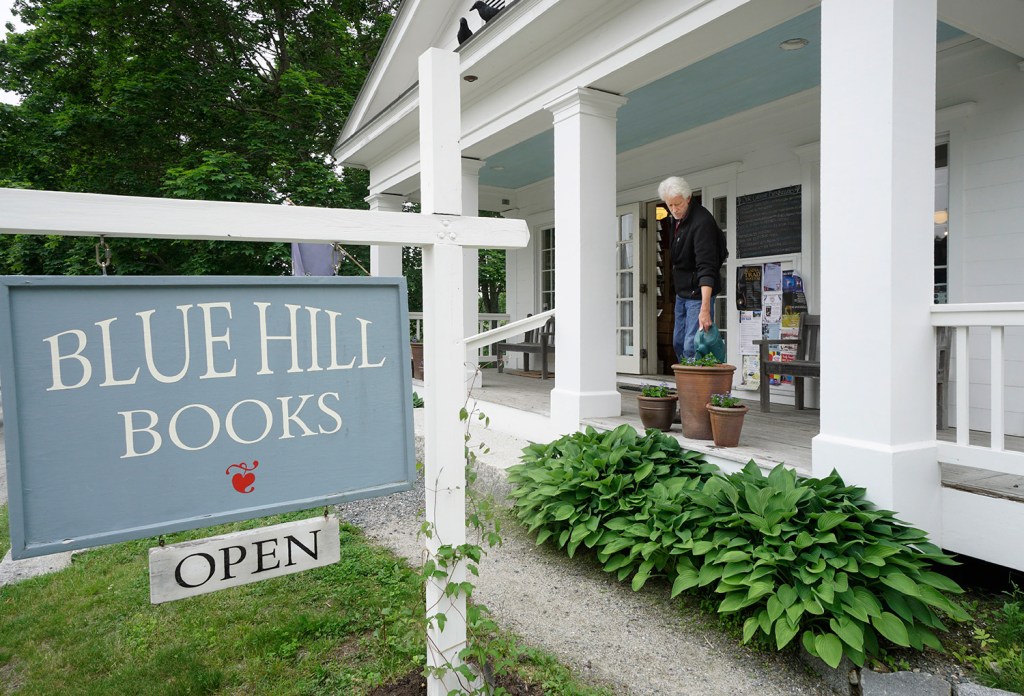
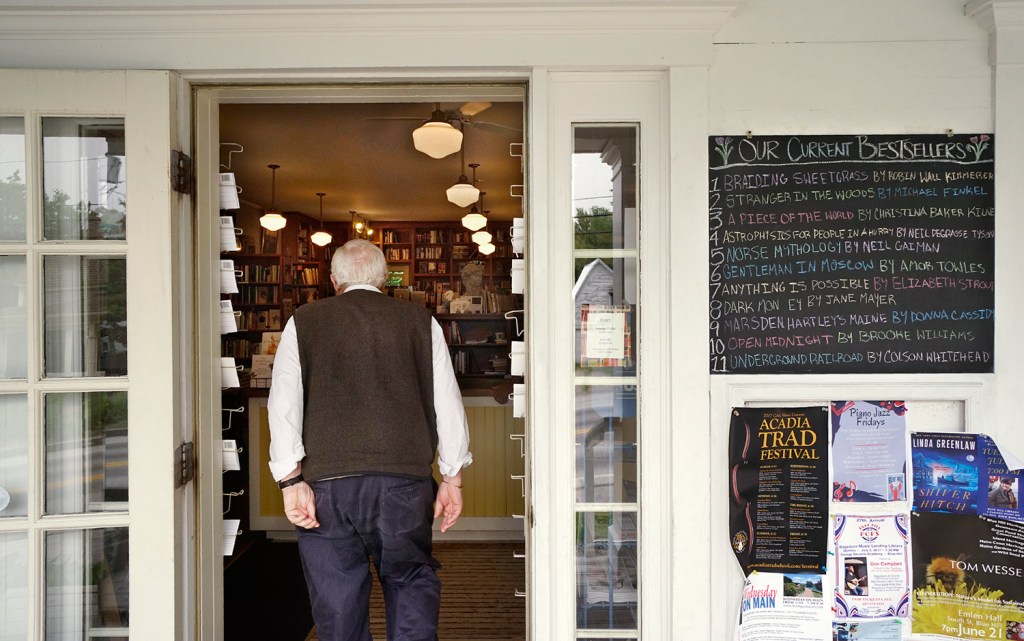
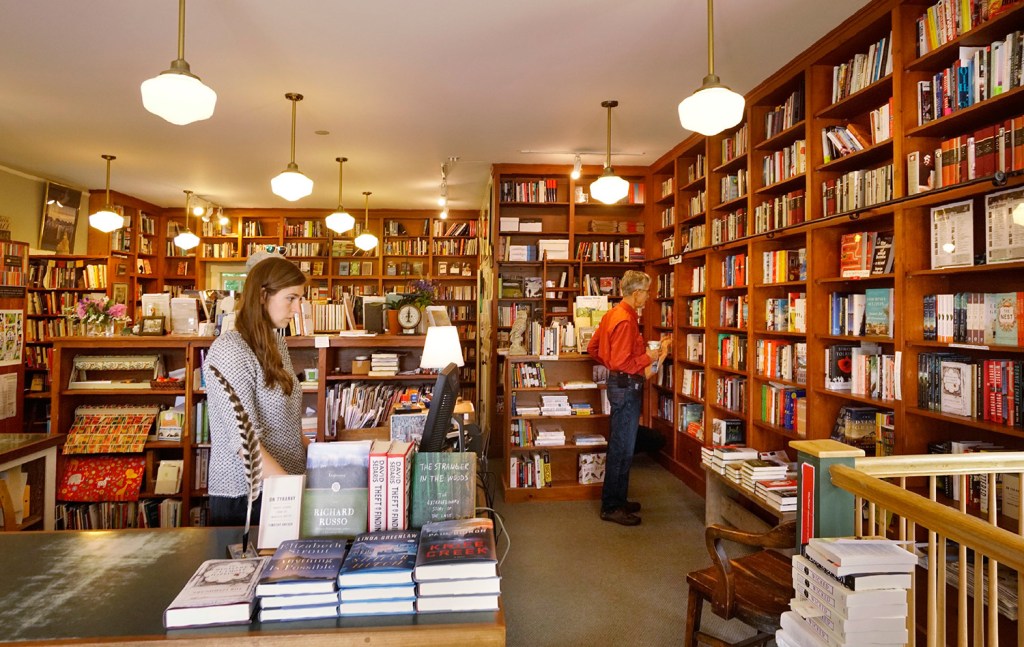
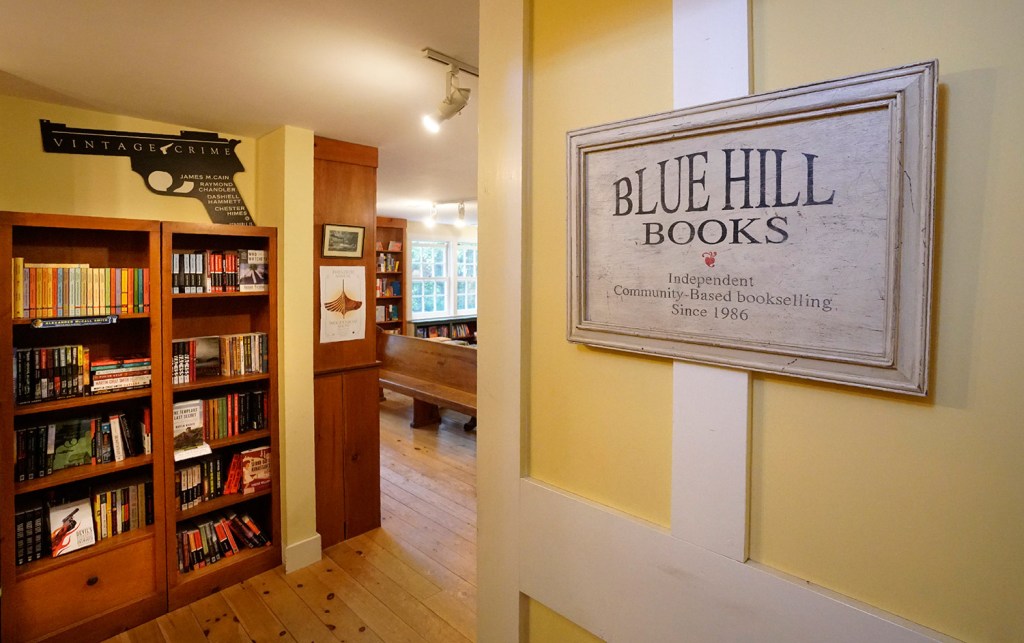
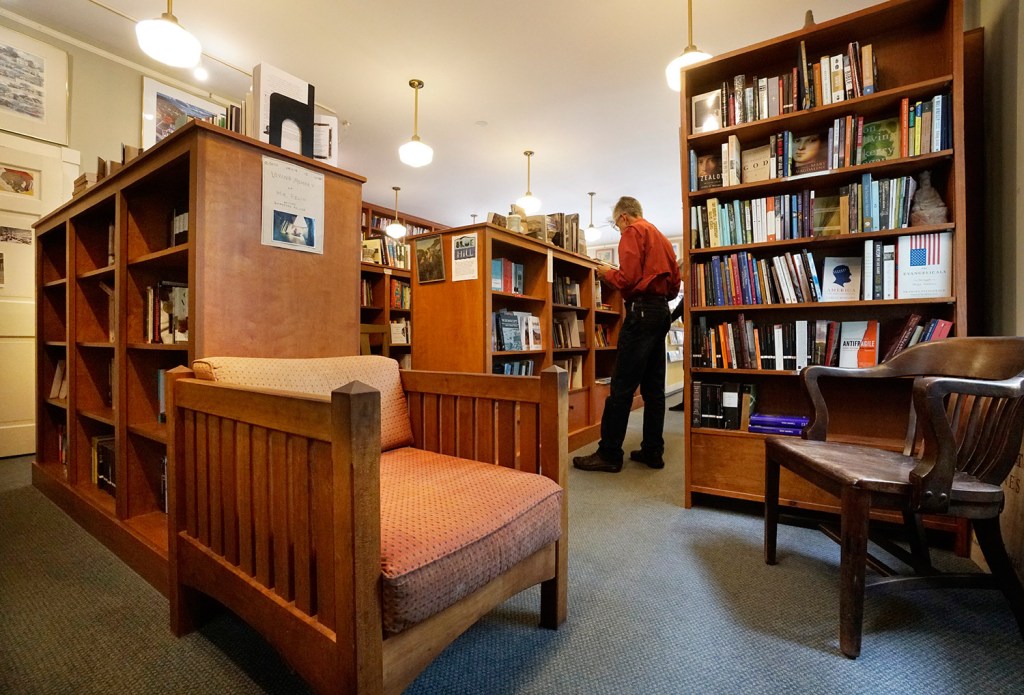


Success. Please wait for the page to reload. If the page does not reload within 5 seconds, please refresh the page.
Enter your email and password to access comments.
Hi, to comment on stories you must . This profile is in addition to your subscription and website login.
Already have a commenting profile? .
Invalid username/password.
Please check your email to confirm and complete your registration.
Only subscribers are eligible to post comments. Please subscribe or login first for digital access. Here’s why.
Use the form below to reset your password. When you've submitted your account email, we will send an email with a reset code.